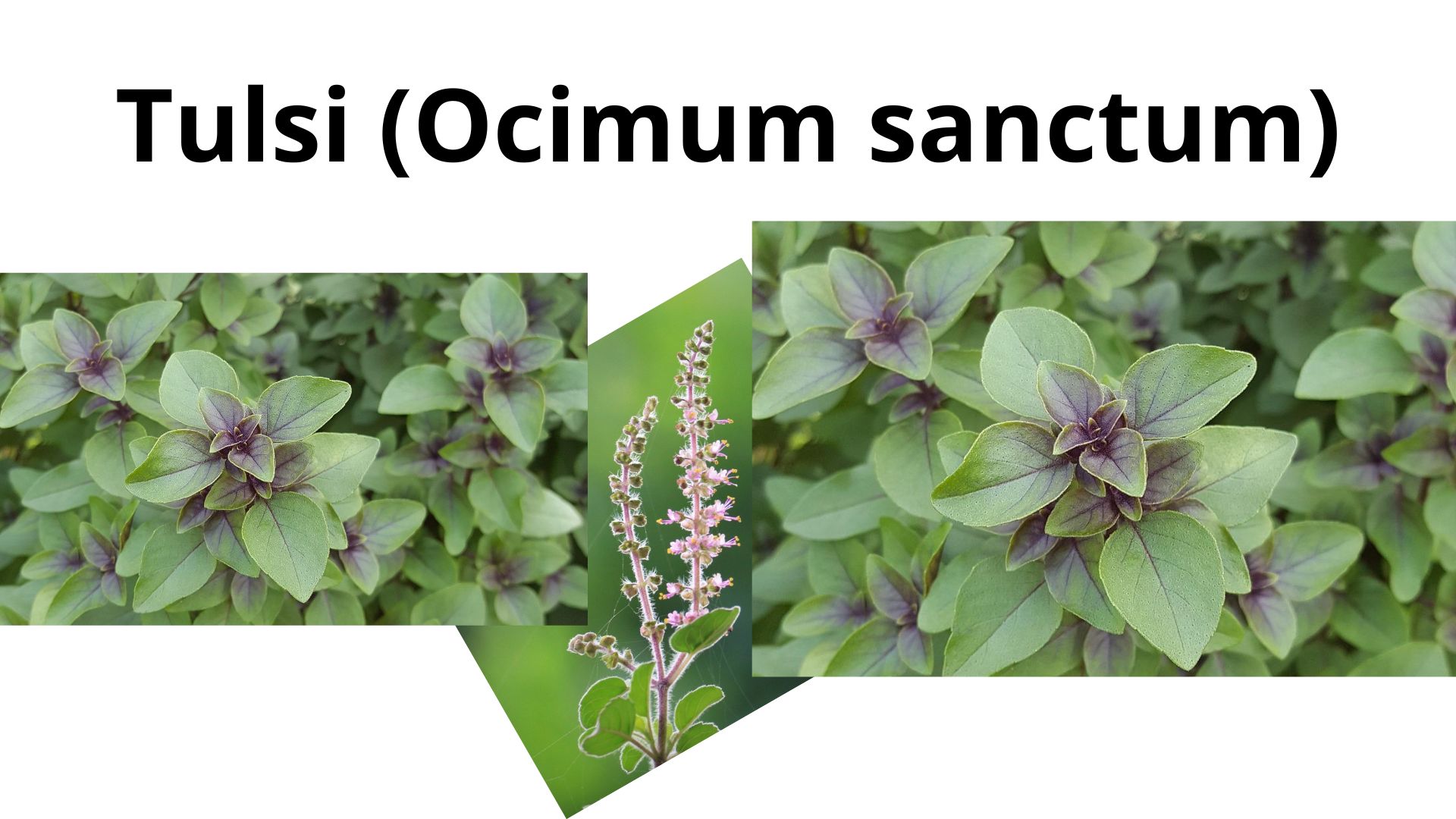Family: Lamiaceae
Scientific name: Ocimum sanctum
Authority: Linn
Common names: tulsi or holy basil
What is tulsi?
Tulsi is a flowering plant that is grown for its aromatic leaves. It is native to India and has been used for thousands of years to promote a healthy mind, body, and spirit. In Hindi, tulsi is known as holy basil and is a sacred plant used for ayurvedic medicine, beauty, and spiritual purpose.
Significance of tulsi
In Verdic texts of ancient India, tulsi is considered as the plant embodiment of Lakshmi (the Hindu goddess of wealth, fortune, power, beauty, fertility, and properties).
In Hindu mythology, tulsi is regarded as the portal between earth and heaven and is believed to be the plant embodiment of the divine.
Among Christians, tulsi is considered as holy or sacred and is used for spiritual rituals.
Over the years, tulsi has come to represent many things to different people, eventuating in it having copious benefits.
The benefits of tulsi
As more and more people use tulsi, additional benefits are discovered. The following lists some of the most common benefits of tulsi.
- It is used to treat illnesses such as colds, flu, cardiovascular, stomach, kidney, and respiratory ailments.
- It protects against insects, flies, and mosquitoes.
- It helps treat malaria fever.
- It is known to have antibacterial, antimicrobial, antiallergic, and anti-inflammatory properties.
- It is an anti-stress agent.
- It helps treat skin ailments such as eczema, rash, and ringworms.
- It can be used to fight against bacteria in the mouth that cause plaque and cavity.
- It can be used to improve memory.
The various forms of tulsi and their uses
Tulsi can be used in various forms to realize different benefits:
- Tulsi tea – drinking tulsi tea lowers the levels of cortisol (the stress hormone) in the body.
- Tulsi oil – applying tulsi oil on the skin boosts cell metabolism which enhances skin elasticity and firmness and improves complexion. Tulsi oil can be used in the following ways:
- It can be added to water when bathing.
- It can be used as message oil.
- It can be added to body lotion and applied as ointment.
- It can be added to hair products such as shampoo, conditioner, moisturizer and applied on the hair.
- Tulsi powder – consuming tulsi powder promotes healthy blood circulation and improves digestion.
- Tulsi pill – taking tulsi pills improves immunity.
- Tulsi syrup – consuming tulsi syrup treats dry cough and colds.
- Tulsi juice – tulsi juice can be drank as an appetizer.
You can also use tulsi leaves in their unprocessed form to reap the benefits of tulsi. The leaves have a unique fragrance and distinct taste.
Learn about other Indian products such as Henna (Lawsonia inermis L.), Chai tea – India’s national drink, & Umlotha wamandiya / Holy ash / Vibhuti
Safety precaution
The use of traditional medicine in prescribed dosages will yield good results. Misuse and abuse may lead to complications. To learn about correct dosage, consult a traditional healer or a herbalist. You can also visit imithiyesintu.co.za or email: info@imithiyesintu.co.za to learn more about traditional medicine.
